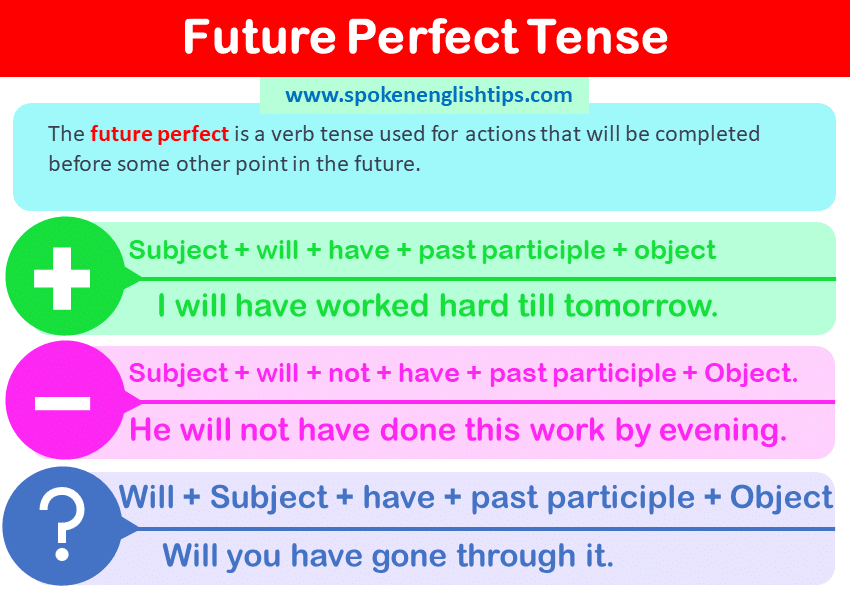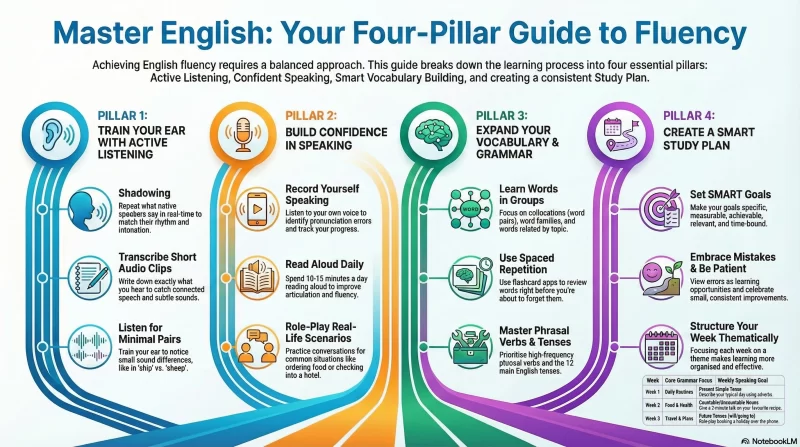Present Perfect Tense! In this section, we will look at how to utilize the future perfect tense as well as several examples to give you a better grasp of how it works. This will allow you to speak and write about future events in greater depth.
Future Perfect Tense
When discussing an action that will occur before a particular point in the future, you must use the future perfect tense. There are guidelines for using the future perfect tense, and it is critical that you follow them in order to write a grammatically accurate phrase.
The future perfect is a verb form or construction that is used to express an occurrence that is expected or planned to occur before a future time reference.
The future perfect construction in English is made up of the auxiliary word “will” (shall) to indicate the future, the auxiliary verb “have” to indicate the perfect, and the past participle of the main verb.

Positive Sentence:
Subject + will + have + past participle + object
Examples: I will have worked hard till tomorrow.
Negative Sentence:
Subject + will + not + have + past participle + Object.
Examples: He will not have done this work by evening.
Question from:
Will + Subject + have + past participle + Object
Examples: Will you have gone through it.


